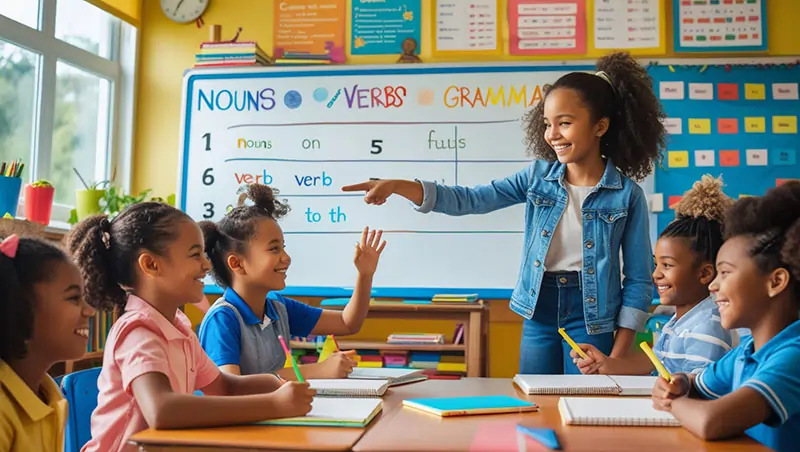5 Educational Subjects That Are Great For Kids

While schools continue to teach fundamental courses such as math, physics, history, and English, the other disciplines have altered significantly. Here are several lessons that you sat through but your children will not attend. These subjects will be of great help to your kids in later life.
1. Anatomy
Recognizing and using bodily parts intentionally is a cognitive, physical, and language-enriching activity. We learn in early infancy via sensory exploration, which occurs as we move through and experience the environment. With each new physical skill, we better know what more we can do/see/explore. Our bodies are our discovery tools. You can further simplify the learning process through helpful platforms that teach anatomy for kids.
Teaching young children to appreciate their bodies early on helps them develop into children and adults who WANT to maintain their bodies strong, healthy, and safe so they may continue to do the activities they like.
2. Typing
You remember days spent repeatedly typing “The fast brown fox leaps over the lethargic hound” into a keyboard or even a typewriter. Nowadays, children’s fingers are sufficiently flexed by texting and typing on their iPads. Many of them can type at breakneck speed without instruction and understand how to utilize technology before speaking.
Children who learn to touch type will work much more quickly since they will not have to glance down at their fingers to choose which characters to push.
Whether they’re working on a school assignment or a personal project, they’ll be able to concentrate entirely on putting their thoughts onto the screen rather than spending energy and time attempting to locate that elusive letter on the keyboard.
Trained touch typists may output up to 80 words per minute (wpm), compared to as little as 10 wpm for non-touch typists. Consider how much more efficient and concentrated they will become as a result.
3. Household Management
Your child will not soon be required to wear an apron throughout the school day. Cooking, housekeeping, hygiene, and other family-oriented subjects are scarce in high schools throughout the country. While some schools continue to offer it, the course is now called “Family And Consumer Sciences” or something like, not “Home Ec.” Parents, the following are the habits of straight-A students.
Additionally, home economics teaches students how to be informed, shoppers. It teaches pupils how to manage their money and spend it wisely. This lesson covers skills that adolescents transitioning to adults should use in their daily lives, such as patience, attention, and situational awareness.
4. Numerals in Roman
Nowadays, several kids are unable to read an analog clock, much alone roman numerals. While this was never taught as a separate topic in school, children are not taught how to read roman numerals in arithmetic class.
Previously, you were taught how to read through books to locate content to include in your writings. That is correct, not Google. You may recall leafing through the index of an Encyclopedia or Atlas searching for a fact for your article. Consider yourself somewhat out-of-date if you believe that. Consider how education was 100 years ago.
Or, at the very least, you can make it enjoyable! Because writing in roman numerals is similar to writing in code or hieroglyphics, take advantage of this chance to make arithmetic more enjoyable and interesting. Additionally, if your kid is having difficulty with the arithmetic they are presently studying, Roman numerals may provide a welcome diversion and change of pace if they are irritated or disheartened.
5. Skills for Life
While students may graduate from high school knowing how to compute the square root of an imaginary number, they lack essential life skills such as budgeting, negotiating student debt after college, and taking out a mortgage for a home. These fundamental abilities were formerly included in the high school curriculum but are no longer taught in many institutions today. However, people are beginning to see the value of developing these life skills from a young age. Some schools are now offering “adulting” programs that educate students about budgeting, time management, and how to handle conflict in relationships, among other things.
Teaching your kid life skills is critical not only for self-care and self-sufficiency but also for his empowerment, sociability, reasoning, and the development of healthy self-esteem. Many see fundamental courses such as language and mathematics as among the most critical.
Other traditional disciplines like history and geography are also seen as significant by the majority of people, whereas others such as computers and physical education are regarded as less significant.


